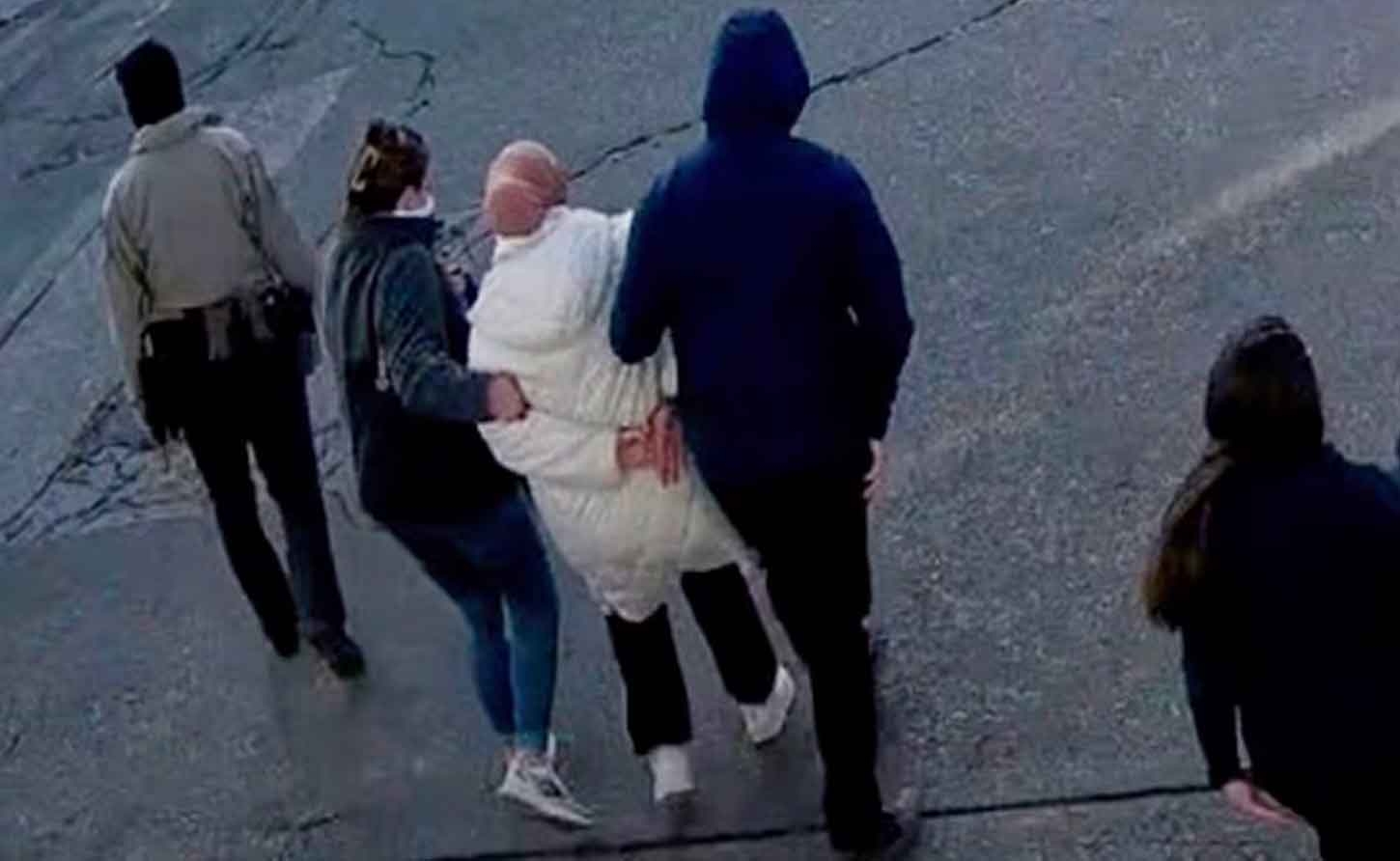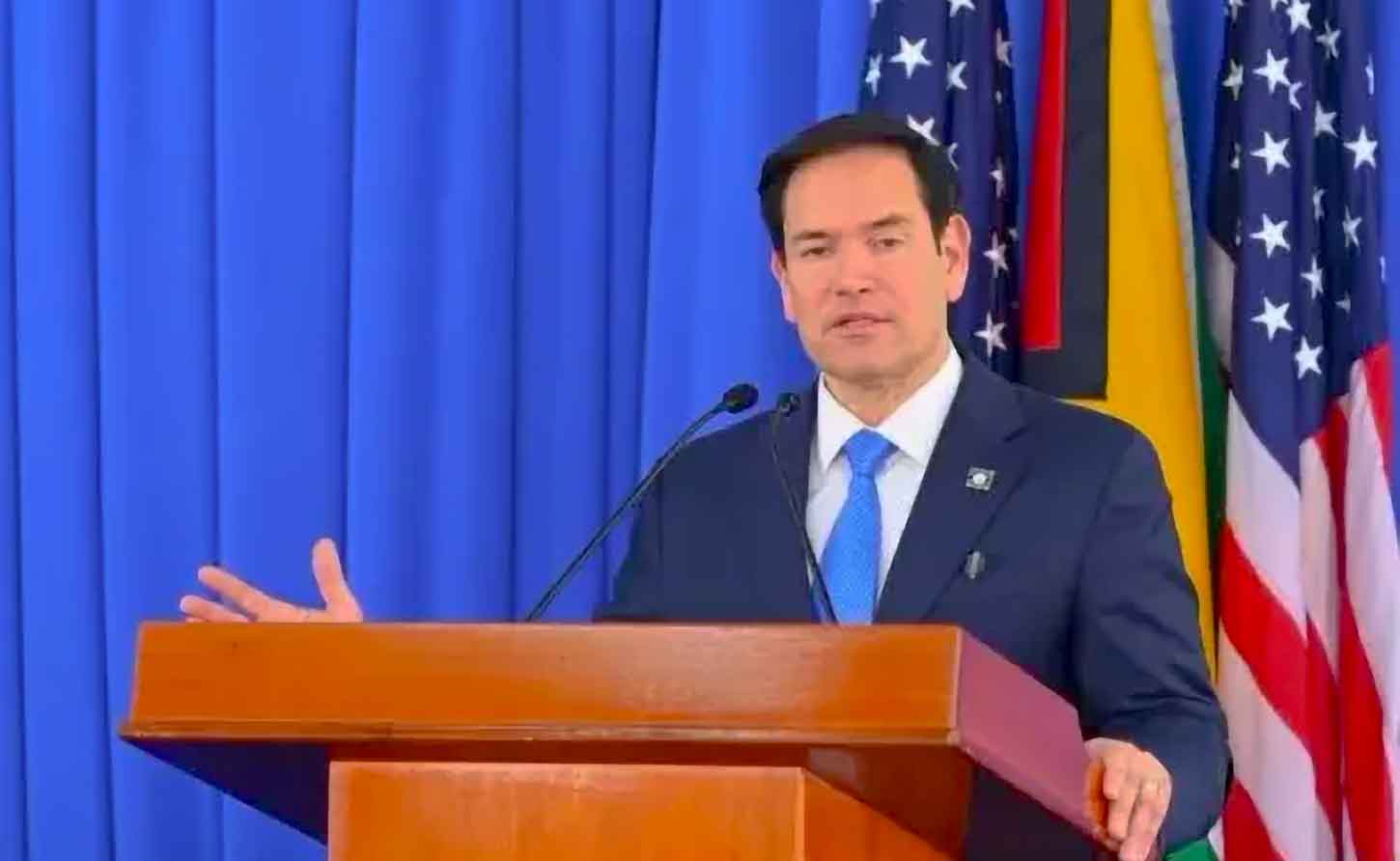GUYANA | "We Do It Every Day": Rubio Boasts of Mass Visa Revocations in Crackdown on Pro-Palestine Activists

Over 300 foreign nationals have had their visas stripped away in a sweeping purge targeting pro-Palestine voices on American campuses, with U.S. Secretary of State Marco Rubio personally celebrating the removals and dismissing the affected individuals as "lunatics."
"Maybe more than 300 at this point. We do it every day, every time I find one of these lunatics," Rubio declared during an official visit to Guyana, confirming the scale of the State Department's aggressive visa-review campaign that has placed hundreds more under scrutiny. "At some point, I hope we've run out because we've gotten rid of them."
The crackdown's human toll came into sharp focus this week when masked agents in plainclothes detained Rumeysa Ozturk, a Turkish doctoral student at Tufts University studying on a Fulbright scholarship. She was on her way to the university when she was abducted, and stuffed into an unmarked car and sent to a detention center in Louisina.
Her arrest followed an op-ed she co-authored in her student newspaper expressing support for Palestinians in Gaza. The Department of Homeland Security justified the action by claiming she "engaged in activities in support of Hamas," though they've provided no evidence for the accusation.

The Secretary's comments have fueled growing criticism that the administration is weaponizing immigration enforcement to silence political dissent. "We gave you a visa to come and study and get a degree, not to become a social activist, to tear up our university campuses," Rubio added, drawing a distinction that legal experts and civil liberties advocates have challenged.
Democratic Congresswoman Ayanna Pressley called Ozturk's detention "a horrifying violation of Rumeysa's constitutional rights to due process and free speech," accusing the administration of "abducting students with legal status" and referring to the Turkish student as a "political prisoner."
Ozturk joins a growing list of academic figures caught in the administration's dragnet, including Palestinian permanent resident Mahmoud Khalil and Indian postdoctoral researcher Badar Khan Suri. Like Ozturk, both had expressed pro-Palestinian views but hadn't been formally accused of crimes. In both cases, courts have temporarily blocked their deportations.
Other similar cases have emerged across the country, including an Iranian engineering student in Alabama and a Lebanese professor in Rhode Island, with the latter ultimately being deported.
The Trump administration maintains that the First Amendment doesn't apply to non-U.S. citizens in deportation cases—a position that constitutional scholars have vigorously disputed. Meanwhile, in a statement to Fox News, the State Department framed the visa revocations as addressing "national security concerns," claiming to be processing "hundreds of visa reviews to ensure visitors are not violating terms of their visas and do not pose a threat to the United States."
This visa-revocation campaign represents just one facet of a broader, more restrictive immigration agenda. The administration has simultaneously implemented other measures, including pausing green card processing for certain refugees and asylum seekers and directing visa officers globally to deny entry to transgender athletes.
As masked agents continue their campus sweeps and the Secretary of State publicly celebrates the daily addition of names to the revocation list, the message to international students is unmistakable: political expression comes with the risk of sudden detention and deportation, regardless of legal status or academic standing.
-30-
